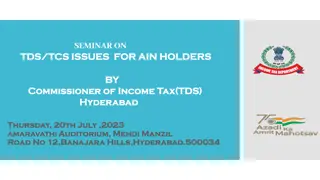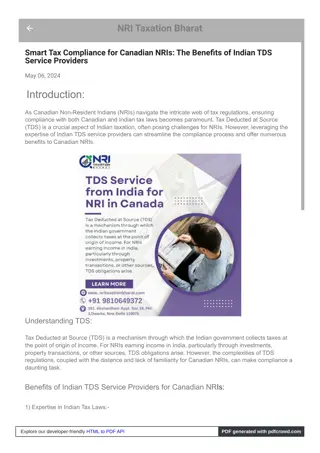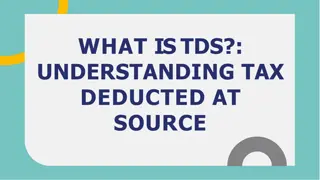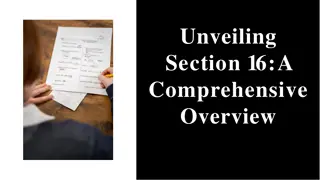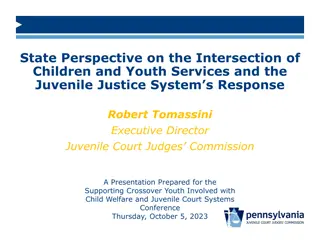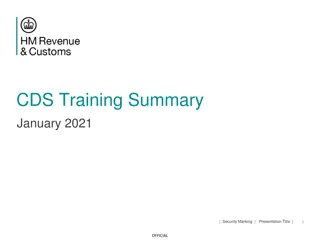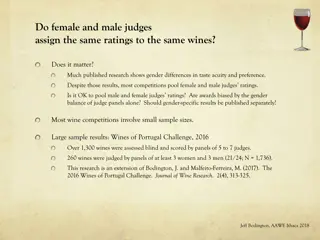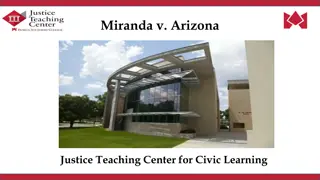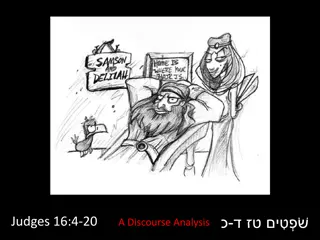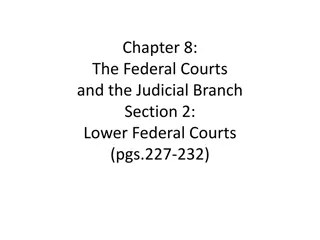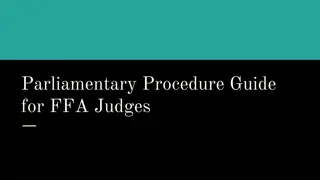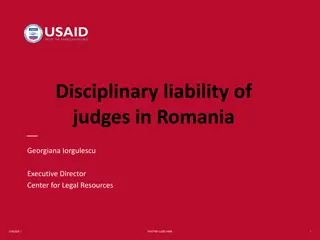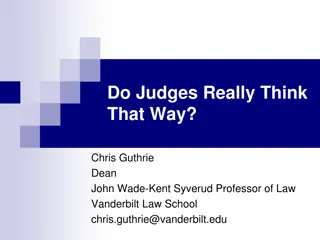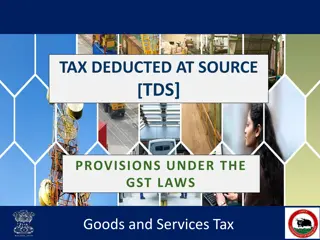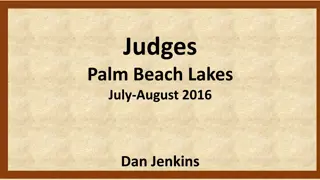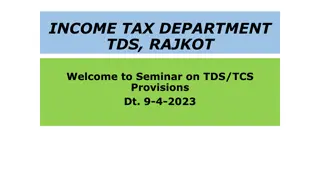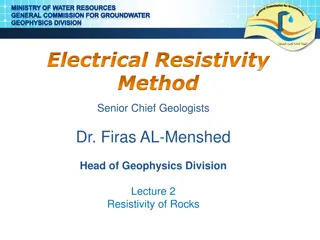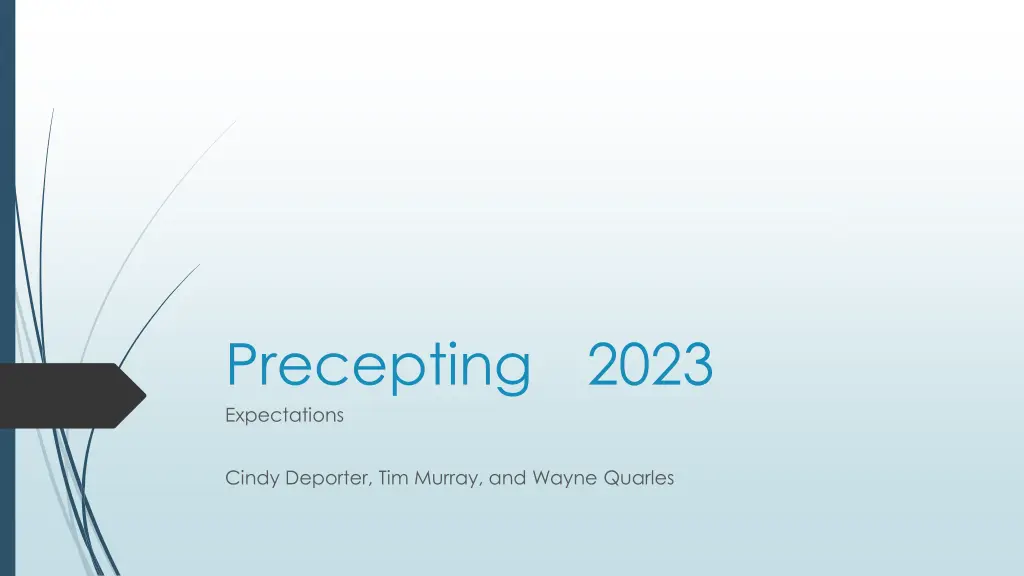
Effective Preceptorship in Event Management: Responsibilities and Expectations
Discover the essential aspects of precepting in event management, including candidate expectations, preceptor responsibilities, and objectives. Learn about guiding candidates, providing feedback, and ensuring a successful learning experience.
Uploaded on | 4 Views
Download Presentation

Please find below an Image/Link to download the presentation.
The content on the website is provided AS IS for your information and personal use only. It may not be sold, licensed, or shared on other websites without obtaining consent from the author. If you encounter any issues during the download, it is possible that the publisher has removed the file from their server.
You are allowed to download the files provided on this website for personal or commercial use, subject to the condition that they are used lawfully. All files are the property of their respective owners.
The content on the website is provided AS IS for your information and personal use only. It may not be sold, licensed, or shared on other websites without obtaining consent from the author.
E N D
Presentation Transcript
Precepting Expectations 2023 Cindy Deporter, Tim Murray, and Wayne Quarles
Precepting: Objectives You will be able to complete a precepting form on the candidate You will learn how to talk with the candidate/trainee about areas that need improvement You will learn why it is important to provide constructive feedback to candidates You will learn how to document on the forms.
Preceptor: Nuts and Bolts The candidate is required to contact the organizer and received permission to apprentice at the event. When the candidate contacts you to apprentice, please see if they have contacted the organizer. The candidate is responsible to be with the preceptor during the competition. A person that is precepting for a President of a Ground Jury/TD position should be at the competition when you start on the day prior to the competition and then when the competition ends. This could be one day or more than one day. The candidate must be at the competition for the level of their license, ie r, R, S. A small r needs to have a certain number of competitions that at least have Preliminary.
Precepting: Candidate Expectations The candidate should bring their own supplies and should pay for their own motel and food costs. The candidate should have the proper tools to do the work
Preceptor Responsibilities Your responsibility is first to the event and then to the candidate Allow the candidate to participate in discussions and meetings Teach the candidate how to Read the Rule book Teach the candidate how to measure SJ courses and XC courses Teach the candidate how to do the math in figuring times for SJ and XC Review with the candidate the expectations of being an official Review with the candidate what constitutes a conflict Review and model behavior that is respectful to the competitor, organizer and objective Review the evaluations with the candidate and provide constructive feedback during the experience
Preceptor Responsibilities: basic concepts for all Provide an honest written evaluation of the candidate's abilities and provide direction and guidance on areas that need improvement Review the paperwork that is required Review the Accident Plan, and the fall forms and the accident forms with the trainee and when these are used Review and explain the role of the officials and the concept of team work Provide direction on how to approach competitors/organizers in the job capacity The preceptor evaluations must be sent in timely to Nancy Knight at the USEA
Precepting Strategies Plan out activities that provide experiences for the prospective official/upgrade candidates. Prospective officials/upgrade candidates should be observing and following you as a preceptor Examples of areas that they should be exposed too: Dressage ring steward Jump judge Scribe Ring crew Scoring Control Observed the secretary
Responsibilities Candidates need to have a good overall view of the competition and what your role is at the competition as an official Spend time with them prior so that the apprenticeship will be meaningful Candidates will come to you with many levels of experience make sure that you help them fill in the gaps of areas that they need to work on You must sit down with them and review the evaluation. Be prepared to provide constructive direction. The candidate needs to sign as do you If a candidate doesn t seem to understand or you think that they need more experience, then your discussion with that should be reflective of their need to address these areas of concern. You must document this on the forms
Talking to the Candidate I know we all have been caught at the end of the event with everyone going home and not being able to sit down with the person and discuss the experience. There are a couple of solutions to this. Throughout the competition discuss as you go along with the prospective candidate the experiences and immediately provide clarification and insight if the person doesn t understand, or misreads the situation. Sometimes it is not possible to stop what you are doing but as soon as possible, talk with the candidate and review the situation. It is always appropriate to have the person look up the rules, then discuss the situation. It is also acceptable to talk with the person after the competition. The paperwork still has to be completed and discussed with the candidate. A strategy when you talk with the candidate is to have them tell you how they think they did in analyzing or understanding the situation presented.
Talking to the Candidate If you ask the candidate their perception of the situation, it gives you the opportunity to observe and review their critical thinking skills and how they evaluate a situation. Evaluating situations on an active field of play has to be thoughtful and based in experience. This is why it is important to debrief with the candidate as soon as possible after situations happen during the weekend to help provide them with your experiences on handling situations and also how to critically think through these types of situations.
Talking to the Candidate Ask the candidate what they viewed as the issue. Ask them what solutions could have been used Ask the candidate how they felt about the situation and what type of thoughts that they were having during the situation. Ask them how they would have reacted, or if they had reacted what would have been a better approach Ask them what types of strategies can be used to make objective decisions. Talk to the candidate about your perceptions of their actions above. Provide specific feedback.
Providing Constructive Feedback It is necessary to provide factual, specific constructive feedback to candidates. You should be able to clearly communicate what you believed the candidate did not grasp or areas that the candidate needed to consider before making a decision. If is not fair for a candidate to see in writing what was not discussed during the experience. It is hard being a preceptor and it is not for everyone. Candidates can be helpful but they also deserve to have a learning experience and also good direction
Documenting the Experience The forms are being redone and the candidate should provide you with a copy of the forms. Be factual when you complete the form. Direct the prospective official to the rule book, to the rule and then discuss the different concerns. You should document this discussion on the evaluation form and also the resolution of the situation. People learn differently so providing a variety of learning opportunities is important, ie observation, reviewing the rule book, talking to other officials the organizer etc.
Documenting the Experience Let the candidate read what you have written on the forms. You both have to initial and sign the forms to assure that everyone is on the same page. Again, stay with the factual information, and factual solutions. It is important that a candidate clearly understands if they do grasp a concept and that they have the solution as to how they move forward in the program if there are concerns. Precepting takes work and it is not for everyone.
Updated Preceptor Criteria: The USEF has indicated that the USEA LOC committee has the leeway to chose or not chose candidates for being a preceptor. Application Criteria Preceptor applicants must have been a licensed official and currently active at the relative level for five years or more. Active is defined as officiated at a minimum of nine events over the past three years as a USEF Eventing Judge, FEI Eventing Judge, USEF Eventing TD, FEI Eventing TD, USEF Eventing CD, or FEI Eventing CD. Review The Preceptor List will be reviewed and updated annually during the USEA Annual Meeting or throughout the competition year. New Preceptor applications will be reviewed at USEA Annual Meeting. ELOC Committee members may nominate eligible officials for consideration and those nominated individuals are required to submit an application. .
Updated Preceptor Criteria Maintenance Criteria Preceptors must meet the following maintenance criteria: Maintain the applicable USEF or FEI Judge, TD, or CD license Current USEA Membership and USEF Active Membership Officiate at a minimum of nine competition within the past three years with the applicable license Preceptors must notify the USEA LOC every two years that they are interested in continuing to be a preceptor, if not their name will be removed from the preceptor list. Officials that meet the eligibility requirements are not automatically guaranteed to be selected as a Preceptor.
Updated Preceptor Criteria Removal from the Preceptor List Preceptors who do not meet the maintenance criteria by December 1 of the current year will be removed from the Preceptor List. Waivers may be granted to officials who have been licensed for more than 10 years. These waivers must be approved by the USEA ELOC. A Preceptor may be removed from the List, after an investigation and discussion with the Preceptor, by a majority vote of the ELOC Committee for any of the following reasons: The Preceptor has no time or interest in working with apprentices. Receipt of complaints from apprentices to USEA or USEF. The Committee feels that at this time the Preceptor is not up to the standard required. The Preceptor does not meet the maintenance criteria. Preceptors who no longer wish to be part of the program should advise the co-chairs of the ELOC in writing of their desire to be removed from the Preceptor List.
Questions? Thank you!

